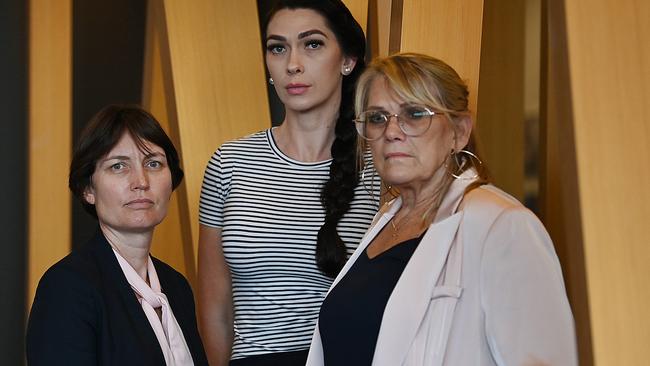Shandee’s Story: ‘A victory for victims, their families and the justice system’
Almost five years ago, Queensland’s state-run forensics laboratory made a disastrous choice not to test DNA samples that fell below a certain threshold.

Almost five years ago, Queensland’s state-run forensics laboratory made a disastrous choice not to test DNA samples that fell below a certain threshold.
That decision has meant thousands of DNA samples, which may be vital to convict killers and rapists, have never been fully analysed.
Who made that decision and why is unknown, but will be exposed when witnesses are compelled to give evidence before a royal commission-style inquiry that begins public hearings next week.
Before January 2018, samples with low levels of DNA were concentrated by scientists to try to improve a likelihood of obtaining a useful DNA profile.
This process was stopped after a report by two of the lab’s scientists claimed the chance of finding new evidence from concentrating samples was as low as 1.86 per cent.
Queensland police last year quietly began running their own review of the lab’s unusual failure rate in detecting DNA, after evidence of disturbing practices was uncovered by forensic expert Kirsty Wright in the podcast series Shandee’s Story. The lab claimed the success rate would be only 1.86 per cent; police found it to be as high as 66 per cent.
Dr Wright, the former national head of Australia’s criminal DNA database, sounded the alarm last November and has repeatedly warned there was “potentially a very large number” of cases where offenders aren’t being identified when they should be.
It took the government until June this year to order a commission of inquiry to investigate the lab.
After the commission’s interim report was delivered on Tuesday, which found statements made by scientists in court were “untrue”, the government committed to retesting thousands of crime scene samples back to 2018.
On Tuesday, Health Minister Yvette D’Ath said the situation was “extremely serious” and could lead to “the potential of miscarriage of justice … But what we do know is even if there just one case, one victim, one alleged perpetrator, where the DNA shows a connection, either partially or full, to someone involved in a crime, we have a responsibility to act and provide that person with justice in whatever way we can.”
The Bar Association of Queensland, which represents the state’s 1300 barristers, is concerned untrue statements given by the lab has meant available lines of inquiry for prosecution and defence were not pursued, which may have affected the outcome of trials.
Dr Wright told The Australian on Tuesday that she was “really pleased” with initial findings of inquiry. “I see today as victory for victims, their families and the criminal justice system and I look forward to further findings of the inquiry.”



